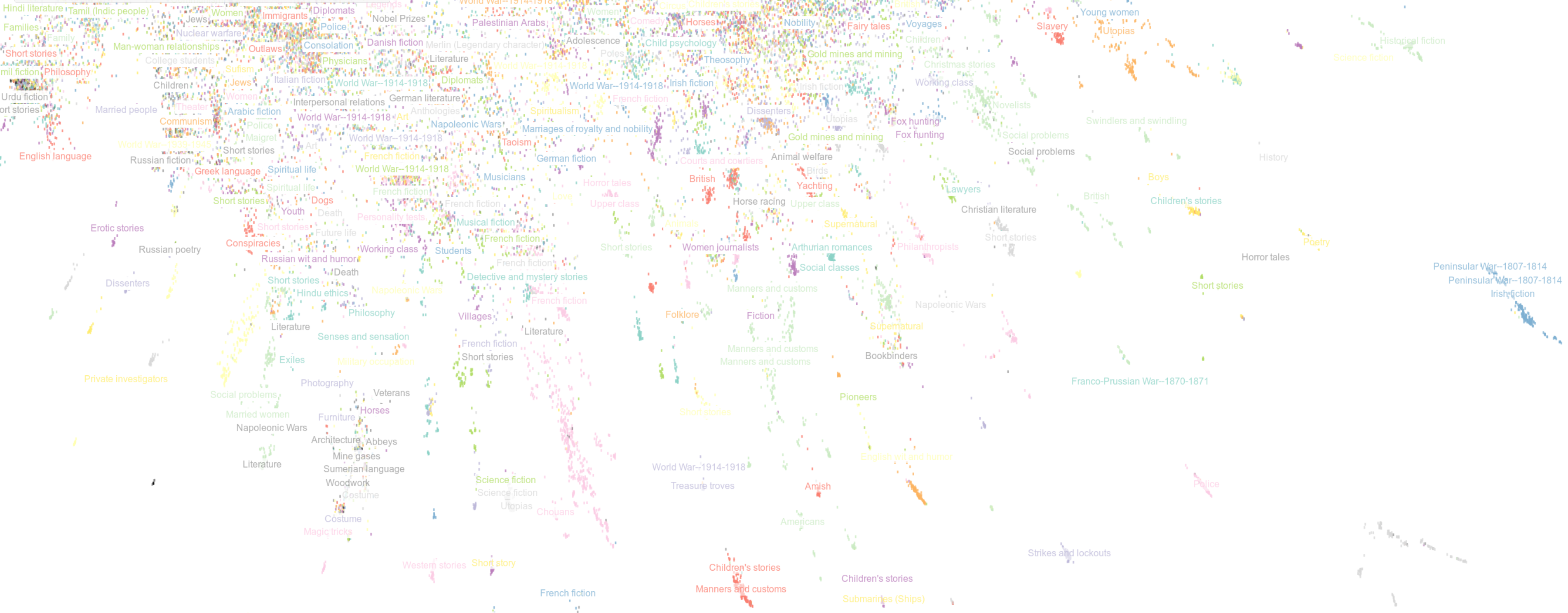Humanities Data Analysis
Data analysis in the humanities presents challenges of scale, interpretation, and communication distinct from the social sciences and sciences. In recent years, a number of new practices in this sphere have begun to cohere: “cultural analytics,” “distant reading,” “macroanalysis,” and “feminist data visualization.” But it can be hard for humanists to learn how to apply these practices, not just talk intelligently about them.
This graduate seminar will develop skills to read and create scholarship in these computationalist traditions of the digital humanities. We’ll do so through more traditional seminar readings and a series of programming worksets that will teach you how to do a variety of types of data analysis and visualization in the R language that are actually useful for humanists.
You can read a preliminary syllabus on this site, which will change. The previous version of the worksets are up here; we’ll probably have a second set of office hours to work through them.
This course will meet on Thursday evenings at about 4:30 at Northeastern University in Spring 2019.
